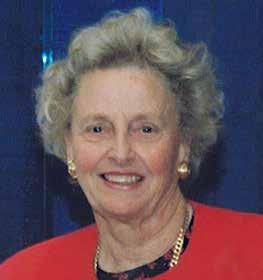Middle School Advisory Puts Mission Statement into Action
I
t is Kameron Barthels’ birthday, and his Eighth Grade Advisory group, led by Middle School English teacher Liz McIlravy, is celebrating. There is the traditional birthday snack, but before cookies, everyone in the Advisory takes time to truly celebrate what makes the birthday person special. McIlravy gives students a series of prompts to inspire their writing. “Kam, thank you for…” “You have a great way of…” “I have always admired…” “I appreciate the way you…” “Wasn’t it great when we…” “In class, I have learned from you that…” When everyone has finished, McIlravy reads the messages to Kam. Occasionally, he nods and smiles as he listens. “Kam you are such a unique, cool, creative guy and incredibly good at building and taking things apart. You have a passion that not a lot of people have at this age, and it’s very inspirational.” “I admire the way you are always so kind to everyone, no matter what.” “I’m grateful for you always having a positive attitude.” Birthday well-wishes ended, the Advisory digs into the cookies, and then begins an exercise called “Poetry Scramble.” The warm, light mood established during the birthday wishes exercise continues, as students work in teams to create impromptu poetry from random words. “They wouldn’t say they are doing social and emotional learning, because it doesn’t feel forced,” McIlravy says. “And yet, that is exactly what is happening.” On other days, the lesson may be more
30
Colorado Academy Journal
direct. “We’ve talked about bullying and about respecting people of different heritages,” says Eighth Grader Abe Kirkpatrick. “I feel like it’s opened my mind to different perspectives.”
How Advisory has changed Colorado Academy Middle School Advisory has always been a place for a group of students to make close friends, engage with an adult who serves as an advocate for the student and a liaison with parents, and most important, have fun. In 2019-2020, Advisory is still that, but more. This year, Middle School adopted a program developed by the Institute for Social and Emotional Learning (IFSEL), an organization with an international reputation. The curriculum focuses on five areas of learning: self-awareness, self-management, responsible decision-making, relationship skills, and social awareness. CA believes these social and emotional competencies help promote a healthful school climate where students can succeed socially and academically, grow into leaders, learn to respect diversity, achieve, collaborate, and develop mindfulness. The many topics students might tackle include technology safety, healthy friendships, bullying and resolving conflicts, giving and receiving feedback, drugs and alcohol, and living with digital media. “As students have become more adept at using technology for communication and interaction, they have less practice in faceto-face community building and problem solving,” says Middle School Principal Bill Wolf-Tinsman. “Developing those skills is every bit as important to long-term success as the academic challenges we provide.”
‘Lift-Up’ and ‘No-Joke Zone’ lists The Advisory, comprised of 12-15 students, meets daily with an adult Advisor. Exercises may range from improvisation, group building, book reading and discussion, relaxation time, meditation, mindfulness, journal writing, and attending school assemblies. Students know that Mondays and Fridays focus on social and emotional learning. Advisories also meet a second time each day for study hall, so their Advisors can track both emotional and academic progress. Starting the first day of school, Sixth Grade Advisor Peggy Butler has used a number of exercises to help her Advisory students build friendships. There is a “No-Joke Zone” list compiled by students, listing things people should avoid saying because they are not funny to others: “Making fun of my height.” “Talking about how I dress.” “Laughing and joking about something online and making fun of me for not knowing what it is.” “It’s so important that from day one, they know what words might hurt someone else,” Butler says. “It’s been my experience that students often hold on to the comments they hear that first week, and that can impact their work in the classroom. If they feel safe and comfortable, that pays off in their classwork.” The students have also built a “Lift-Up” list, to remind each other of behaviors that make them feel good: “When people laugh at my jokes.” “If someone waits for me.” “When I arrive at class, and someone says they are glad to see me.” All Butler’s Advisory students have written





























